After the fourth Test between England and India at Old Trafford had dawdled to a draw, I listened to Ben Stokes’s press conference and then walked back into the media centre to watch the end of the football.
Those of us that remained, gathered around one laptop, glued to the England-Spain penalty shootout in Basle.
After Chloe Kelly had scored the decisive kick, I walked up Warwick Road to my car. There’s a pub near there called The Bishop Blaize and, when Manchester United are playing at home, it is rammed with cheering, singing fans. There is always a queue of supporters outside, waiting to get in.
When I got nearer to it, I heard screams and shouts coming from inside and drifting out into the evening. I wandered in and the place was packed with England football fans watching Leah Williamson and her deliriously victorious team-mates lifting the European Championship trophy.
All the old pictures were on the walls: Sir Jimmy Anderson, Eric Cantona, George Best, Ole Gunnar Solskjaer. But something was different. Alongside them, every single one of the six televisions in the pub had been showing the women’s football.
I started the drive home. My elder daughter had come back for the weekend to see England-Spain with a couple of old schoolmates. She said the pub where she’d watched it had been heaving with supporters.
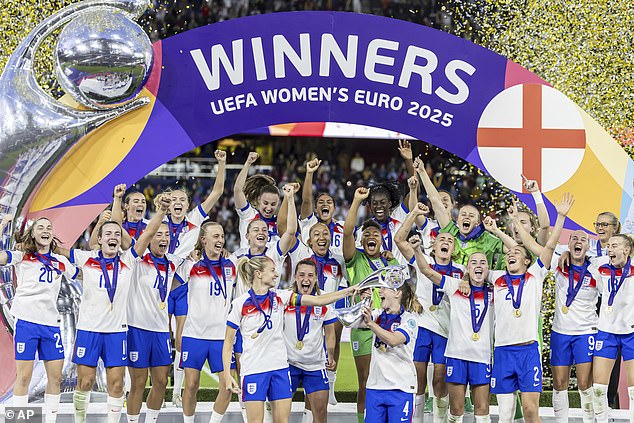
England won the women’s Euros for a second concstuive time after beating Spain in the final
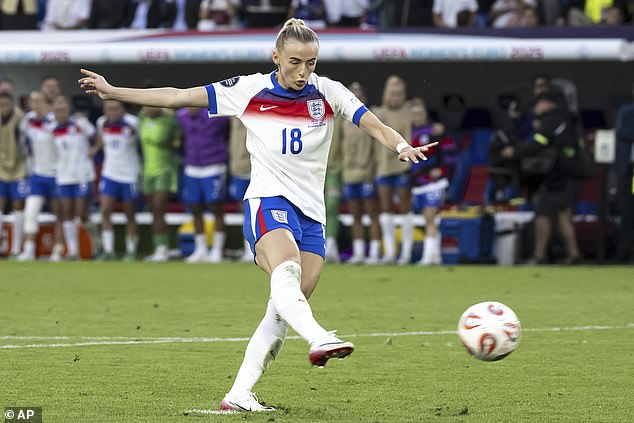
Chloe Kelly’s winning penalty in the shoot-out sparked celebrations across the nation
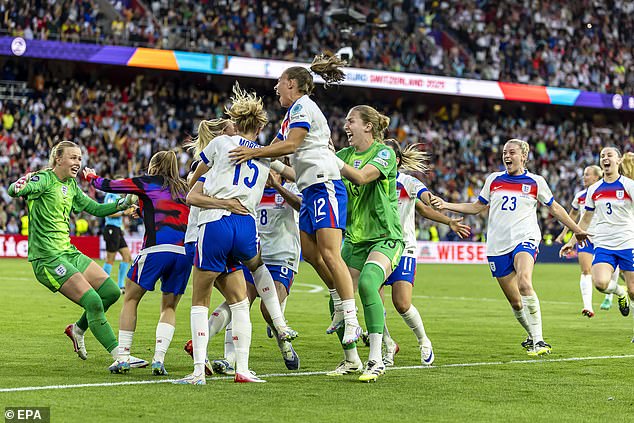
England’s victory in Switzerland was watched by millions up and down the country
My younger daughter had watched it with her mum. My son was at a music festival and, when I picked him up, he said the band he was watching had announced the result from Switzerland during their set.
It occurred to me then how much more visible the women’s Euros had been than the men’s Club World Cup. Several factors helped determine that: free-to-air television for the Euros and a subscription channel for the Club World Cup was one of them but, still, the difference was stark.
FIFA desperately tried to pump up the Club World Cup as the great showpiece for the men’s game but, in this country, it barely broke the waves. I had to work hard to find a bar showing the final in London earlier this month. Even though Chelsea won it, it failed to capture the public imagination.
But the women’s Euros were everywhere. The final was a national event. Millions were gripped by it. There will be a parade. There will be official receptions. There will be mentions in honours lists and Chloe Kelly will be up against Rory McIlroy for Sports Personality of the Year.
In some ways, none of this is news to anyone. Women’s football in this country has been on the rise for the last 20 years and it is pushing more and more into the mainstream. There are still many eager to demean it but triumphs like Sunday night’s will only give it more power.
It was a hugely important triumph, just as this team’s victory at the Euros in 2022 was. Attendances in the Women’s Super League dropped 10 per cent last season and progress is still fragile but the success of the national team will move things forward again.
Not everyone will be converted and that’s fine. No one has to watch women’s football. You could always find another channel showing a meaningless, dull, half-hearted, money-chasing summer series affair in the Far East or America between two Premier League sides who don’t really want to be there and will be complaining about player burn-out before the new season’s three weeks old. If that’s your thing, that’s your thing.
It is amusing when men — and it is almost always men — seek to deride the women’s game given that it was men who banned it in this country for 50 years and stopped its evolution in its tracks. Those voices are being forced further and further towards the margins anyway.
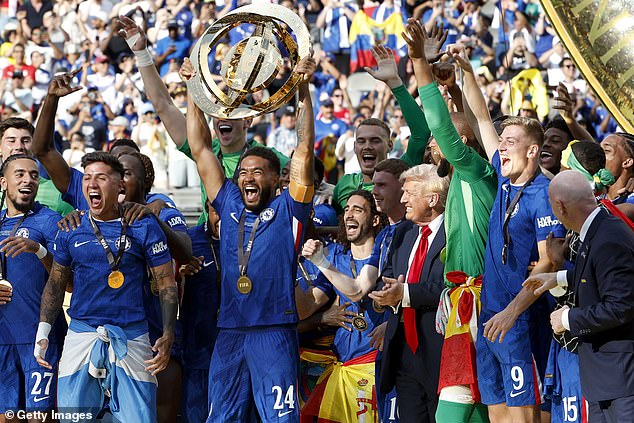
The women’s Euros was more visible than the men’s Club World Cup this summer
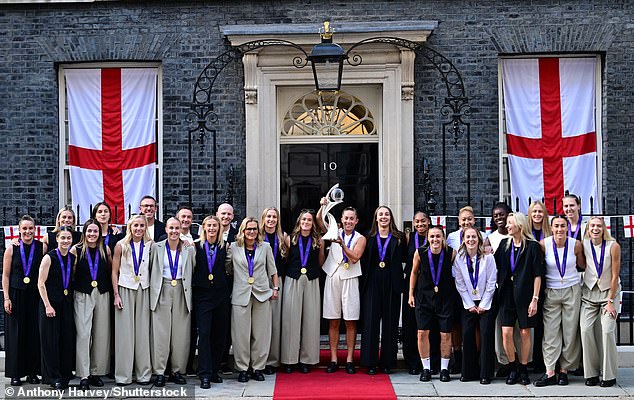
The final was a national event. Millions were gripped by it. There will be a parade. There will be official receptions
The idea that men’s sport is automatically better than women’s sport because men are imbued with physiological advantages is patently absurd. Sport is not all about power. It’s about vision and subtlety and skill and bravery and drama and jeopardy.
The best passage of sport I’ve seen this year? Probably Emma Raducanu’s Wimbledon ladies singles third-round match against Aryna Sabalenka earlier this month.
It was a magnificent, pulsating, enthralling, unrelenting match between two superb athletes with compelling narratives. Did the fact that Novak Djokovic would have beaten both of them diminish that? Not one iota. Because the men’s game is a different event.
Look, it’s not as if I can claim to be a devotee of women’s football. I don’t watch it every week. I wasn’t in Switzerland for the Euros. But I saw the semi-final between England and Italy and I was gripped by the drama of it and particularly by the emergence and the impact and the star quality of the teenager, Michelle Agyemang, who turned the game in England’s favour and rescued them with an equaliser late in added time. It was brilliant to watch. It was great sport.
Some men, mainly on social media, still behave as if they want to outlaw it again. They act as if it is an affront to their masculinity, as if it is violating some male inner sanctum. England’s victory in Europe dealt that opposition another blow.
You know what, it might be time to accept that battle is lost and just start enjoying the sport. The women’s game in this country climbed up another step on the ladder when England retained their European crown on Sunday evening: still it rises.












